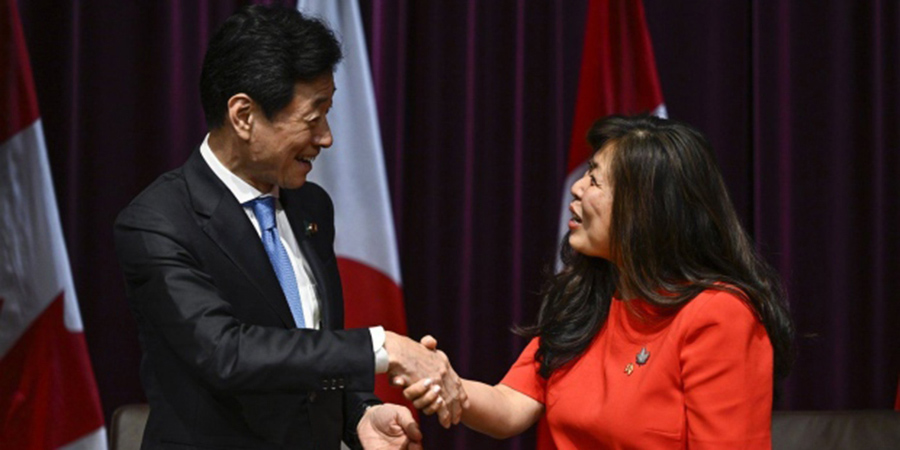Canada and Japan have entered into an agreement to enhance their collaboration in reinforcing supply chains for electric vehicle storage batteries.
To be more precise, the two G7 member nations have committed to a joint effort to advance the development of crucial minerals like lithium required for battery production. Additionally, they aim to encourage Japanese companies to engage in battery production within Canada.
This memorandum of cooperation was formally signed during the visit of Japan's Minister of Economy, Trade, and Industry, Yasutoshi Nishimura. Canada's Minister of Export Promotion, International Trade, and Economic Development Mary Ng, other government officials and selected members of the private sector, are also in attendance during the signing ceremony.
"Canada is an important partner in building strong supply chains that do not depend on any particular country," the Japanese minister said.
Both countries are striving to decrease their reliance on China, which has been escalating its economic pressure, as they prioritize economic security in light of the pivotal role EVs play in decarbonization efforts.
"As worldwide demand shifts increasingly towards cleaner forms of energy, Canada's critical minerals resources and battery supply chains will play a vital role in how we get there," said Natural Resources Minister Jonathan Wilkinson.
Japan contributes expertise in mineral processing, along with established battery and automotive manufacturing firms, while Canada provides access to vital minerals and a growing battery production supply network.
In September, a subsidiary of South Korea's Solus Advanced Materials announced plans to construct a copper foil facility in the province of Quebec, dedicated to manufacturing technology for EV batteries.









